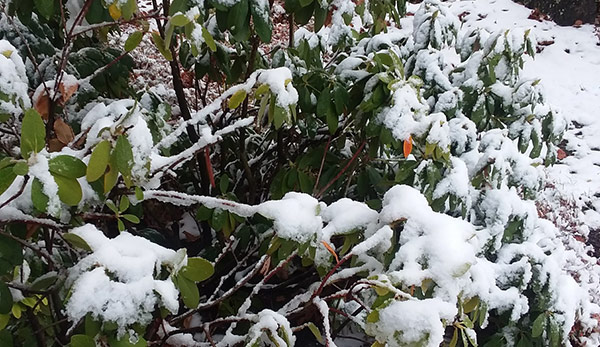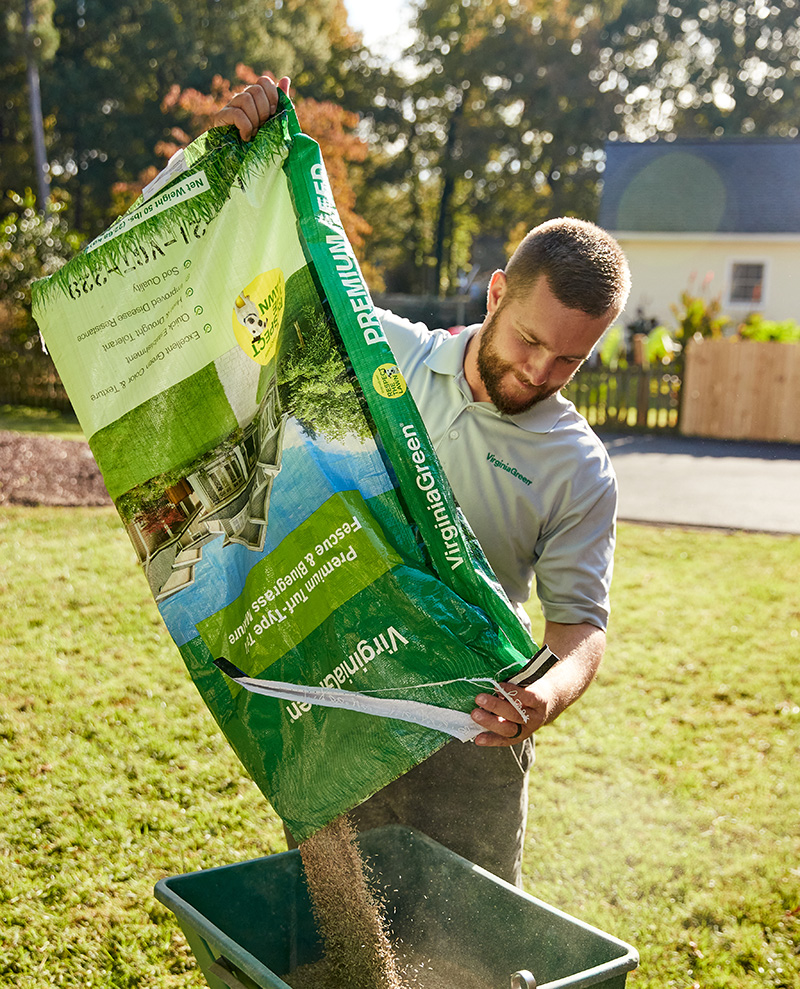
Combat Lawn Disease with Our Estate Lawn Care Program
With temperatures rising earlier than usual this year, lawn diseases are making an unexpected early appearance. These diseases thrive in hot, humid, and moist conditions, particularly during nights when temperatures stay in the low-to-mid 70s. Two common culprits, brown patch (Rhizoctonia) and dollar spot (Clarireedia), are especially active under these conditions.
Heat Stress
The heat is on and my lawn is showing it – yours probably is too. Here in Central Virginia, we live in a transition zone, which means it gets really cold in the winter and extremely hot in the summer, which can (and usually does) equate to stressed turf. Although we can’t really do anything about Virginia weather, there are some steps we can take to help our grass handle the heat.
The three tips below should help your lawn survive the hot weather.
Protecting Your Garden from Cold Weather
Cold weather can be a silent enemy to your garden, often causing unseen damage to plants, trees, and shrubs. Many gardeners overlook this issue, only to find signs of harm in the spring. Wilting leaves and a sparse canopy might surprise you in an otherwise lush season, and you may notice defoliation weeks after a brief cold spell. The root cause? Water management within the plant.
Frost on the Lawn? Keep Off the Grass!
Crisp mornings, sparkling frost, and... don't even think about stepping on your lawn! Yes, the delicate beauty of frost might tempt you, but those shimmering crystals hold a surprising secret: they can wreak havoc on your beloved grass.
Snow on Your Trees and Shrubs
Should you worry about heavy snow on trees and shrubs?
After a heavy snowfall, have you ever thought about removing heavy snow from the branches of your trees and shrubs? There are two thoughts about this question. We will discuss both of them here.

What Are These Small Green Worms In My Trees?
What Are These Small Green Worms In My Trees?
The small green worms you find in your trees are called cankerworms.
How Do I Manage Sedge Weeds in My Flower Beds?
Sedge can be a nuisance in the lawn but can be equally if not more frustrating when populating your flower beds. It is very unsightly when your carefully planted annual and perennials are invaded by this tall grass like weed.
What Happens to Your Lawn in Winter?
In Virginia, grasses go dormant and have a tan appearance in the winter. Shorter days and colder temperatures typically slow down grass growth and turn the lawn a tan/brown color. This will occur with all grass types, including Tall Fescue and Kentucky Bluegrass.
Is lawn dormancy normal?
Lawn dormancy is normal, and we should expect our lawns to be off-color in the winter. By properly preparing our lawns now, we can expect outstanding color and growth in the spring.
Winter Annuals In Virginia
What Winter Annuals Are In Virginia?
One would think that during the winter in Virginia, lawns should be weed free and slow to grow. While slow growing is certainly a probability, certain weeds enjoy the colder temperatures and will seem to be persistent throughout the harshness of our winter. It may seem like some weeds are indestructible, but we assure you they are not! Naturally, even when treated with the proper herbicides, the environment can help to preserve these lawn invaders for a bit longer than desired.
What’s the Best Grass Seed For My Lawn?

A great lawn begins with great seed. Selecting the best type of grass seed for fall aeration and seeding requires understanding several factors.
